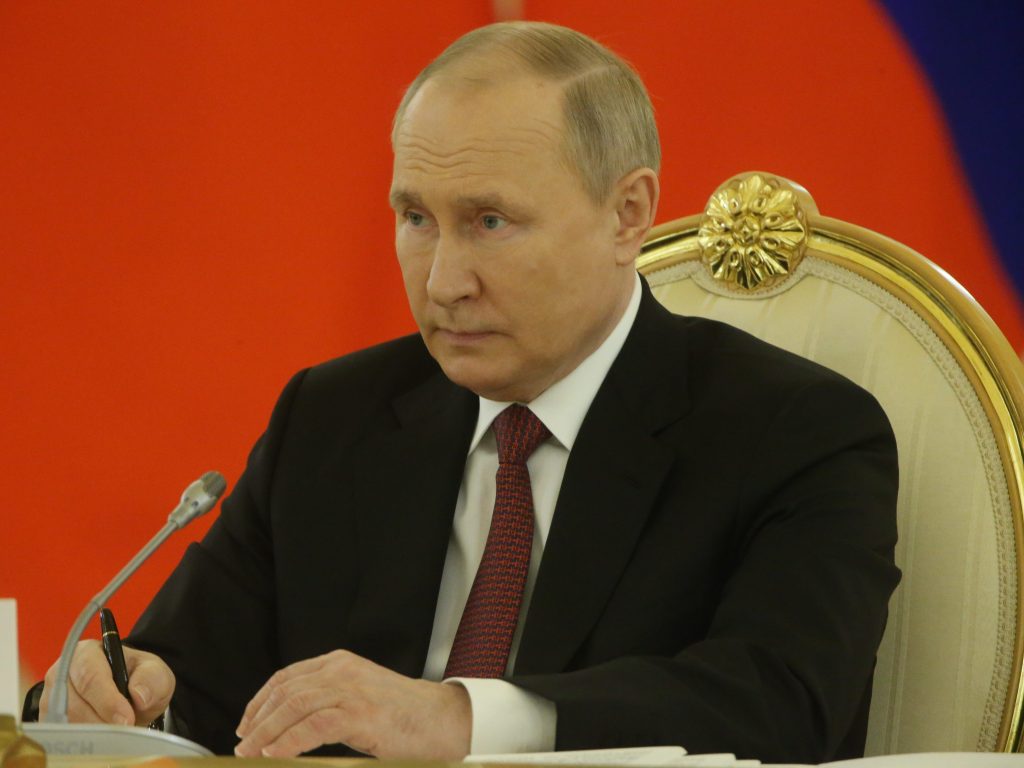- Gazprom is halting natural gas supplies to Denmark's largest energy company because it didn't pay in rubles.
- Ørsted says that it was "under no obligation" to pay for Russian gas in rubles.
- Denmark says it doesn't expect the move to significantly impact its energy security.
Russian energy giant Gazprom is cutting off Denmark's supplies of natural gas because it refused to pay in rubles.
Russia has already stopped supplies to Finland, Poland, Bulgaria, and the Netherlands, as well as some of Germany's supplies because they hadn't paid in its currency.
Denmark says it doesn't expect the move to significantly impact its energy security. Western countries had already been moving to decrease their dependence on Russian energy sources after the country invaded Ukraine in late February. Some had imposed sanctions on Russia's energy sector in an attempt to cut off funding to its military.
Gazprom said on Wednesday morning local time that it had "completely" stopped supplies to Ørsted, Denmark's largest energy company because it hadn't paid in rubles. Ørsted said on Tuesday that Russia that this would come into effect on Wednesday morning local time.
In late March, President Vladimir Putin said Russia would require "unfriendly" countries that had imposed sanctions on Moscow to pay for its gas in rubles. European Commission president Ursula von der Leyen called Putin's policy a "clear breach of contract" and "an attempt to circumvent the sanctions."
Ørsted said on Tuesday that it was "under no obligation" to pay for Russian gas in rubles and would continue to pay in euros.
Gazprom said it had supplied Ørsted with 1.97 billion cubic meters of natural gas in 2021. It claimed that this made up around two-thirds of Denmark's natural gas consumption.
But the Danish Energy Agency said on Tuesday that Gazprom's move wouldn't have an immediate impact on the availability of gas in Denmark. It added that Denmark has an emergency plan in place.
Ørsted said that there wasn't a direct gas pipeline from Russia to Denmark so Russia couldn't directly cut off the country's gas supplies. Ørsted said it expected to be able to buy more gas on the European gas market to plug the gap.
"At Ørsted, we stand firm in our refusal to pay in rubles, and we've been preparing for this scenario, so we still expect to be able to supply gas to our customers," CEO Mads Nipper said. "The situation underpins the need of the EU becoming independent of Russian gas by accelerating the build-out of renewable energy."
Denmark has vast reserves of natural gas but closed one of its biggest gas fields in Tyra in September 2019 for renovations. Ørsted said Denmark imports around 75% of its gas consumption via Germany, and in the first quarter of 2022 Denmark produced 10,856 terajoules of natural gas and consumed 23,451 terajoules, according to the Danish Energy Agency.
A new gas pipeline from Norway is set to open later this year and the Tyra gas field is also expected to reopen in mid-2023, making Denmark a net exporter of gas again. In April 2018, Tyra accounted for just over a third of Denmark's gas production.
In 2021, almost 40% of the EU's natural gas imports came from Russia, which has the world's largest reserves.
The EU also imports vast swathes of its oil supplies from Russia but the EU announced a ban on Russian oil on Monday, which von der Leyen said would "effectively cut around 90% of oil imports from Russia to the EU by the end of the year." Bloomberg calculated that the ban could cost Russia around $10 billion per year, though the country said it would find other importers.
Western countries have been scrambling to fill the gap after cutting off Russian supplies, and some are speeding up their transition to renewable energy.
